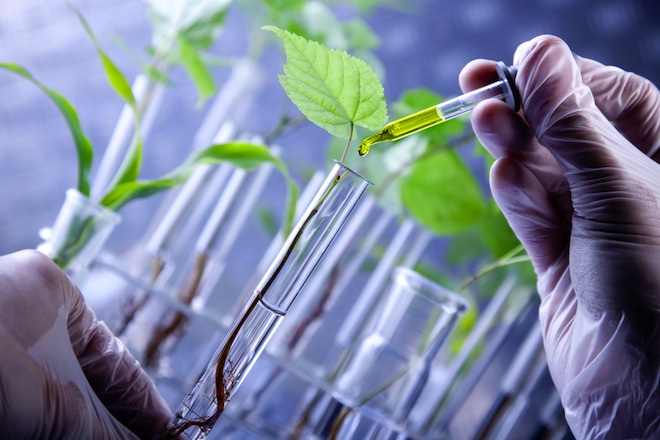 Genetically-modified food has a bad reputation mostly because many food giants are mixing non-plant DNA to create drought and pest-resilient crops that we’ll eventually eat; manipulating plant DNA with plant components, however, is normal practice.
Genetically-modified food has a bad reputation mostly because many food giants are mixing non-plant DNA to create drought and pest-resilient crops that we’ll eventually eat; manipulating plant DNA with plant components, however, is normal practice.
Professor of Biology Shimon Gepstein from Haifa Technion University in Israel forgot to water his genetically-modified “superplants” for a few weeks; instead of perishing, the plants survived the accidental neglect – giving Gepstein an inside peak at their incredible resilience.
As part of a research project recently described in the Proceedings of the National Academy of Sciences, Gepstein modified the plants for longevity by boosting levels of the zytokinin hormone, which delays the aging process.
“Let’s take a staple food, for example rice, when the photosynthesis ends, the rice stops growing, it’s a natural process with every plant,” says Prof. Simon Gepstein, who led the research. “But by extending the juvenile hormone we have managed to extend the life of the plant, therefore producing more crops.”
The research team also found that the “super plants” require less water – a boon for such a water scarce nation as Israel.
“These plants can survive droughts, they can go on for a month without water and even if you water them, they only need 30 percent the amount of liquid normal plants do,” said Geptstein.
With climate change exacerbating already extreme water scarcity throughout the Middle East and other regions, food becomes increasingly difficult to grow. Gepstein believes that his “super plants” could be a solution, particularly since they have a longer shelf life than crops with normal zytokinin levels.
The Israeli research team is not the first to proclaim that their genetically-modified foods might stave off global hunger, but critics worry about the unseen consequences of tampering with mother nature. Yet Gepstein insists his super plants pose no danger.
“Despite all the bad the word ‘genetically modified’ has, I can tell our plants are not dangerous for human health,” said Gepstein, “because we have altered them using their own components, they have nothing added to them.”
Image of lab plant, Shutterstock


